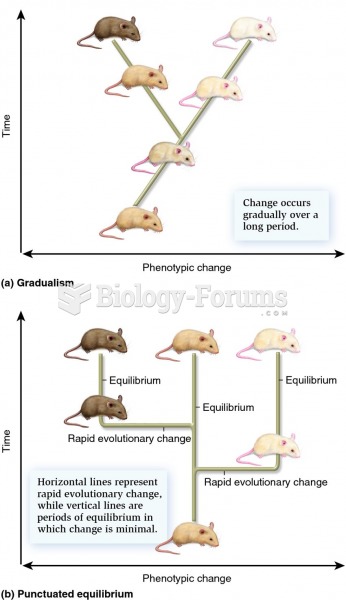This topic contains a solution. Click here to go to the answer
|
|
|
Did you know?
This year, an estimated 1.4 million Americans will have a new or recurrent heart attack.
Did you know?
The FDA recognizes 118 routes of administration.
Did you know?
Vaccines prevent between 2.5 and 4 million deaths every year.
Did you know?
In most climates, 8 to 10 glasses of water per day is recommended for adults. The best indicator for adequate fluid intake is frequent, clear urination.
Did you know?
There are approximately 3 million unintended pregnancies in the United States each year.







